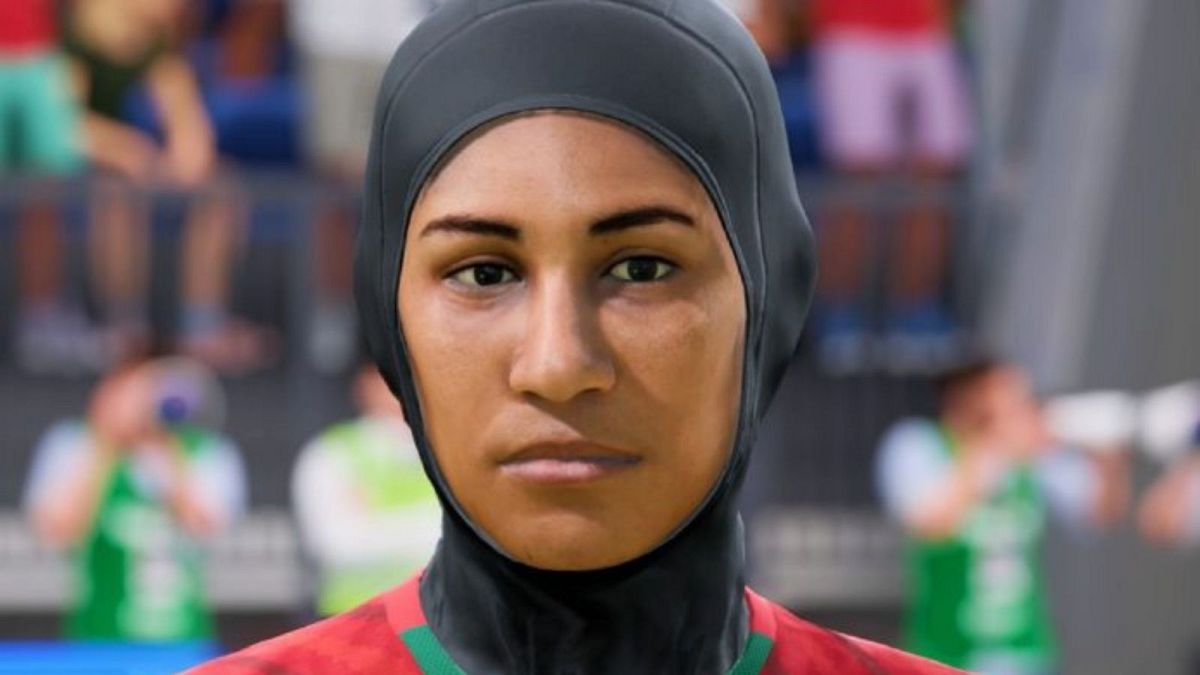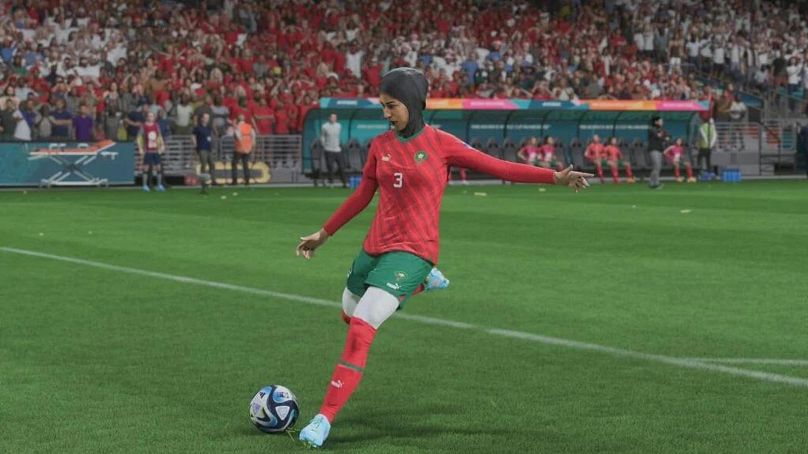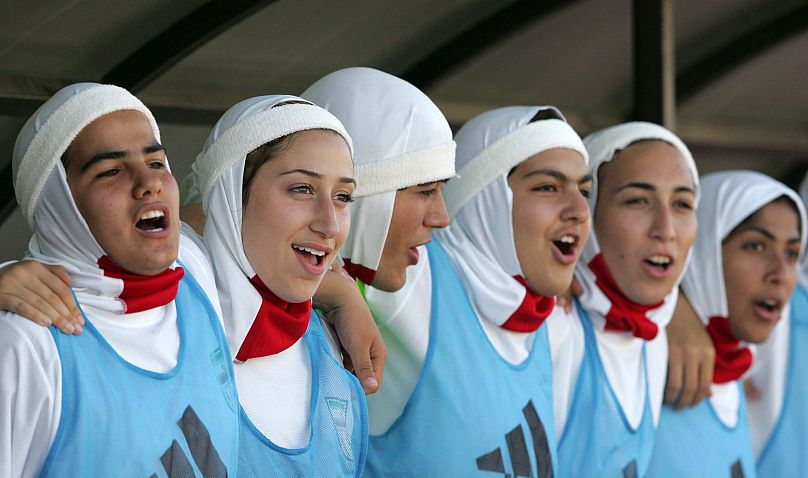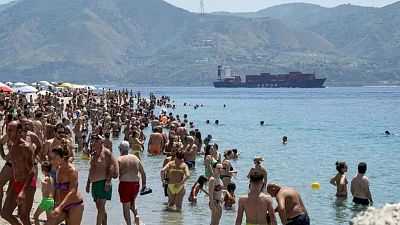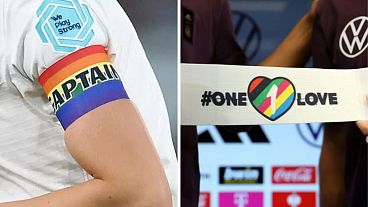FIFA 23 has updated the player model for Morocco defender Nouhaïla Benzina to include a hijab, after she wore the Islamic headscarf in the Women’s World Cup. But why does the hijab remain such a contentious topic in football?
During the ongoing 2023 FIFA Women’s World Cup, Morocco player Nouhaïla Benzina made history by being the first player to play in a World Cup match while wearing the Islamic headscarf.
In the latest title update for FIFA 23, called Title Update 16, EA has updated Benzina’s player model to give her a hijab.
The FIFA series included women’s international teams for the first time in FIFA 16, with FIFA 2023 becoming the first game to also include women’s club teams.
“We have a vision of connecting not just the 150 million fans we have now, but a billion fans,” said Electronic Arts vice president and executive producer John Shepherd. “We want this game and this brand, this club, this ecosystem, to welcome everybody.”
The next game from EA, however, will not be called FIFA, with the series rebranded to EA Sports FC 24, following issues with re-acquiring the FIFA license. This year’s game, EA Sports FC 24, will reportedly feature women as part of the game’s trademark Ultimate Team mode, allowing players to create teams containing both male and female players.
The hijab in football remains contentious issue
The wearing of head coverings for religious reasons in matches was only authorised in 2014, when FIFA (the real-world football governing body, not the EA sports game) updated its rules regarding the hijab. The headscarf had previously been disallowed owing to concerns that it could cause injuries.
Benzina, who plays for Moroccan club ASFAR, as well as the national team, has worn the headscarf regularly during the current Women’s World Cup.
Despite the 2014 authorization, criticism has been levelled at the 25-year-old defender, who was subjected to criticism for her choice to compete in her hijab. Journalist Philippe Guibert called it “incredibly regressive” while French sports publication L’Equipe said that “FIFA’s position is not the same as that of France”.
In June 2023, France's top administrative court upheld a ban on women football players wearing hijab headscarves, after the issue was seized on by politicians claiming secularism was at risk.
"Sporting federations whose task is to ensure the good functioning of public services... can impose a neutrality requirement on their players in competitions and sporting events, to guarantee the smooth running of matches and any clashes or confrontation," the Constitutional Council said in a statement.
It found a French Football Federation (FFF) rule against "any sign or clothing clearly showing political, philosophical, religious or union affiliation" during play to be "appropriate and proportionate".
A group of Muslim women footballers called the "Hijabeuses" had launched the action against the FFF regulation.
Judges found themselves under political pressure ahead of the ruling as mainstream parties look to fend off the far right riding high in the polls.
The French concept of laïcité (secularism) remains a sensitive topic in France, presented by its defenders as a way of guaranteeing the state's religious neutrality and by critics as a dog-whistle against ethnic and religious minorities, especially Muslims.
The move to maintain the hijab ban has been criticized as the decision effectively strips hijab-wearing women to play, officiate and participate at any level of football in France.
Morocco were knocked out of the Women’s World Cup following a 4-0 defeat to France. The French team is to play Australia in the quarter-finals tomorrow, Saturday 12 August.
